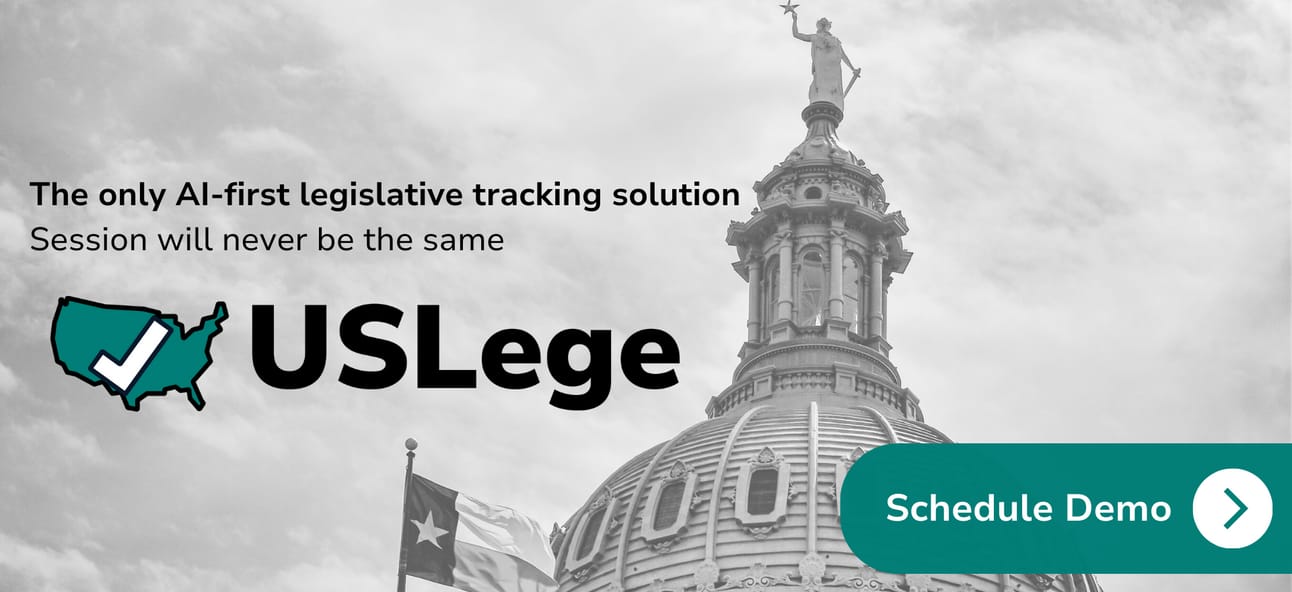
Poll Shows Increased Enthusiasm After Harris Nomination & Texas Court Strikes Down Election Code Provision
By Jeff Blaylock - Founder & Senior Editor
September, 13, 2024
Today we are covering:
Poll Shows Increased Enthusiasm After Harris Nomination
A new UT/Texas Politics Project poll shows former President Trump leading Vice President Kamala Harris 49%-44% in Texas, with Democratic voter enthusiasm surging since Harris replaced President Biden as the Democratic nominee, though likely not enough to overcome Trump's advantage.
Texas Court Strikes Down Election Code Provision
The Texas Court of Criminal Appeals struck down Section 255.004(b) of the Election Code, ruling it unconstitutional for restricting political speech, potentially paving the way for more misleading campaign ads ahead of the general election.
Poll Shows Increased Enthusiasm After Harris Nomination
As expected, the replacement of President Biden as the Democratic nominee with Vice President Kamala Harris has injected new life into the presidential race in Texas, but not enough to deny former President Trump the state's 40 electoral votes. Trump leads Harris 49%-44%, according to the latest University of Texas/Texas Politics Project poll released earlier this week. Trump led Biden 46%-39% in the June poll.
The biggest change aside from the Democratic nominee is the impact of independent Robert F. Kennedy Jr.'s departure from the race. In June, 12% of respondents said they would vote for another named candidate, with Kennedy securing 8%. Now, the percentage of respondents who said they would vote for another named candidate dropped to 2%.
Harris's entry into the race has had measurable upward impacts on enthusiasm about voting among groups more inclined to support the Democratic nominee or oppose the Republican one. Harris's supporters show increased attachment, with 70% wanting her to be elected president compared to 50% in June, while Trump's supporters have remained more firmly attached to their candidate, now at 80% compared to 74% in June.
A slightly higher percentage of Democrats (52%) are now "extremely enthusiastic" about voting in November than Republicans (49%), a reversal from June when Republicans (55%) showed higher enthusiasm compared to Democrats (39%).
Key Democratic groups showing rising enthusiasm include:
Democrats 52%, up from 39%
Strong Democrats 63%, up from 50%
Weak Democrats 36%, up from 21%
Lean Democrats 39%, up from 31%
Women 46%, up from 40%
Black voters 44%, up from 29%
Hispanic voters 37%, steady from 36%
Ages 18-29 30%, up from 20%
4-year degree holders 53%, up from 45%
Pro-choice voters 51%, up from 41%
Conversely, Republican enthusiasm has mostly dropped or remained steady except among white voters and those with a high school diploma, two key blocs for Trump:
Republicans 49%, down from 55%
Strong Republicans 58%, down from 68%
Weak Republicans 34%, up from 29%
Lean Republicans 42%, down from 58%
Men 50%, steady from 49%
White voters 54%, up from 49%
Ages 65+ 64%, steady from 62%
Rural voters 52%, steady from 53%
Pro-life voters 50%, down from 55%
High school diploma holders 51%, up from 45%
Church attendees (more than once a week) 54%, up from 51%
Interestingly, voter enthusiasm has dropped among those with less than a high school diploma, with 22% now "not at all enthusiastic" about voting, compared to 10% in June. Independent voter enthusiasm rose to 30%, up from 24%, but remains low. Suburban voter enthusiasm also slightly increased to 49% from 46%, as did voters aged 30-44, now at 37% compared to 34%.
While caveats about the margin of error in smaller subsets apply, the overall trends indicate new energy on the Democratic side, while Republican enthusiasm remains steady or slightly down. This newfound enthusiasm could translate into more Democratic votes, but may not be enough to secure more victories in partisan races, most of which remain non-competitive.
Farewell to Sender: Texas Court Strikes Down Election Code Provision
On September 4, the Texas Court of Criminal Appeals, in a mostly united decision, upheld an appellate court ruling finding Section 255.004(b) of the Election Code to be an unconstitutional violation of the First Amendment.
Broadly, Chapter 255 places some limits on the content and delivery of political advertising. Section 255.004 prohibits political advertising that "purports to emanate from a source other than the true source." In other words, it prohibits faking the source of an ad or other campaign communication "with intent to injure a candidate or influence the result of an election."
The case arose from a former Plano council candidate accused of sending text messages that appeared to come from a different candidate. "While the government’s interest to protect voters from confusion, fraud, and undue influence by preventing misleading communications is certainly compelling, we agree ... it is not narrowly tailored to achieve the interests advanced by the State," wrote Judge J. McClure for the majority. "While the State tries to justify the statute as a means of preventing dirty tricks, the statute here criminalizes protected anonymous and truthful political speech and has the chilling effect of impermissibly restricting engagement in political discourse."
Even if that engagement is false and falsely attributed. Expect to see more dirty tricks now that the possibility of criminal prosecution is largely compromised less than two months before a general election.
We hope you enjoyed today’s read!
Stay connected with TXLege on X @TXLege_
Find what you need in committee hearings, floor debates, and state agency meetings faster with USLege. Say goodbye to tedious tasks!

Jeff Blaylock, Founder and Senior Editor brings over 25 years of political expertise, encompassing analysis, campaign management, government service, and advocacy. With a focus on Texas elections and legislative processes, Jeff's career includes roles such as Chief Committee Clerk for the Texas House of Representatives' State Affairs and Financial Institutions Committees.
His leadership ensured no point of order was sustained against committee legislation.
Jeff also served as a policy and budget analyst at the White House's Office of Management and Budget and the U.S. Department of Veterans Affairs, in addition to various management roles in national political campaigns. He began sharing his election insights in 2005, publishing Texas Election Source for nearly a decade. Jeff's comprehensive understanding of public policy and its impact on elections was honed during his tenure as Managing Director at Public Strategies (now Hill+Knowlton Strategies), where he advised clients on legislative strategies, public affairs, crisis communication, and brand reputation.
He holds a Bachelor's degree in journalism with a political science minor from Texas Christian University and a Master's in public policy from Georgetown University. Currently, Jeff serves as the VP of Client Services at Kith, a leading crisis management consulting firm.
